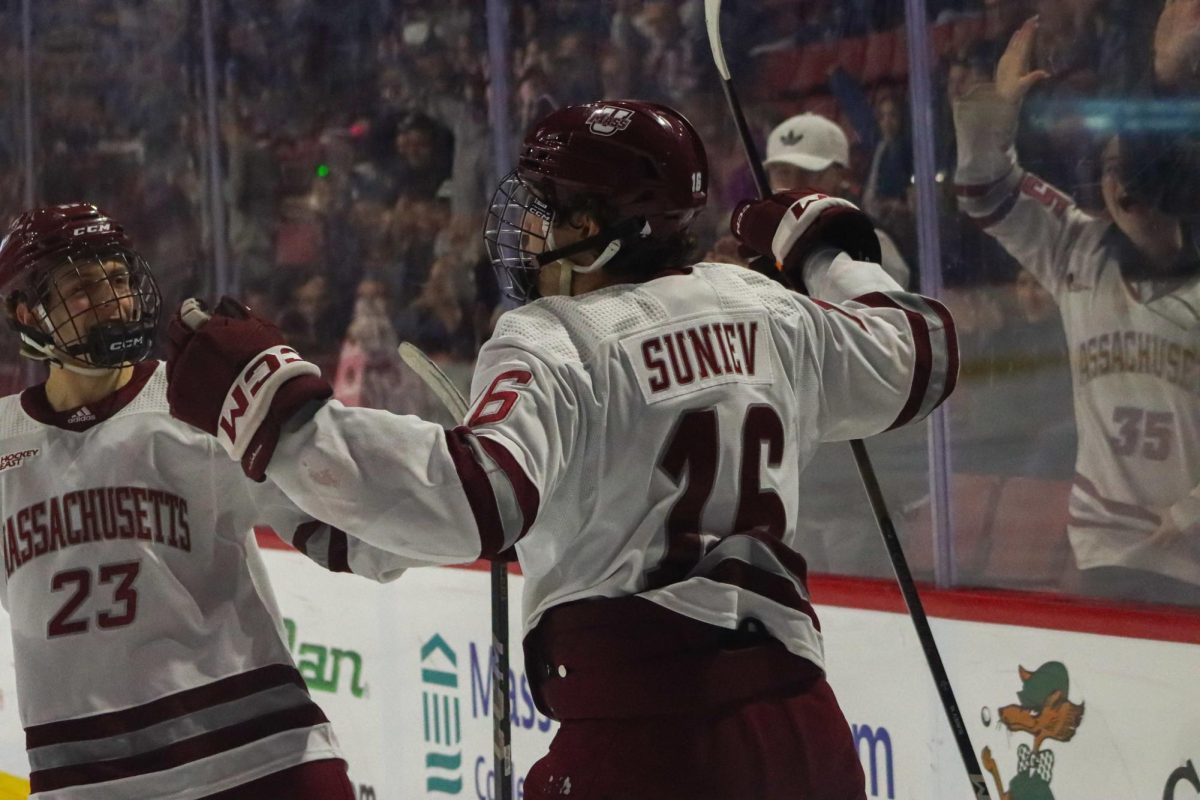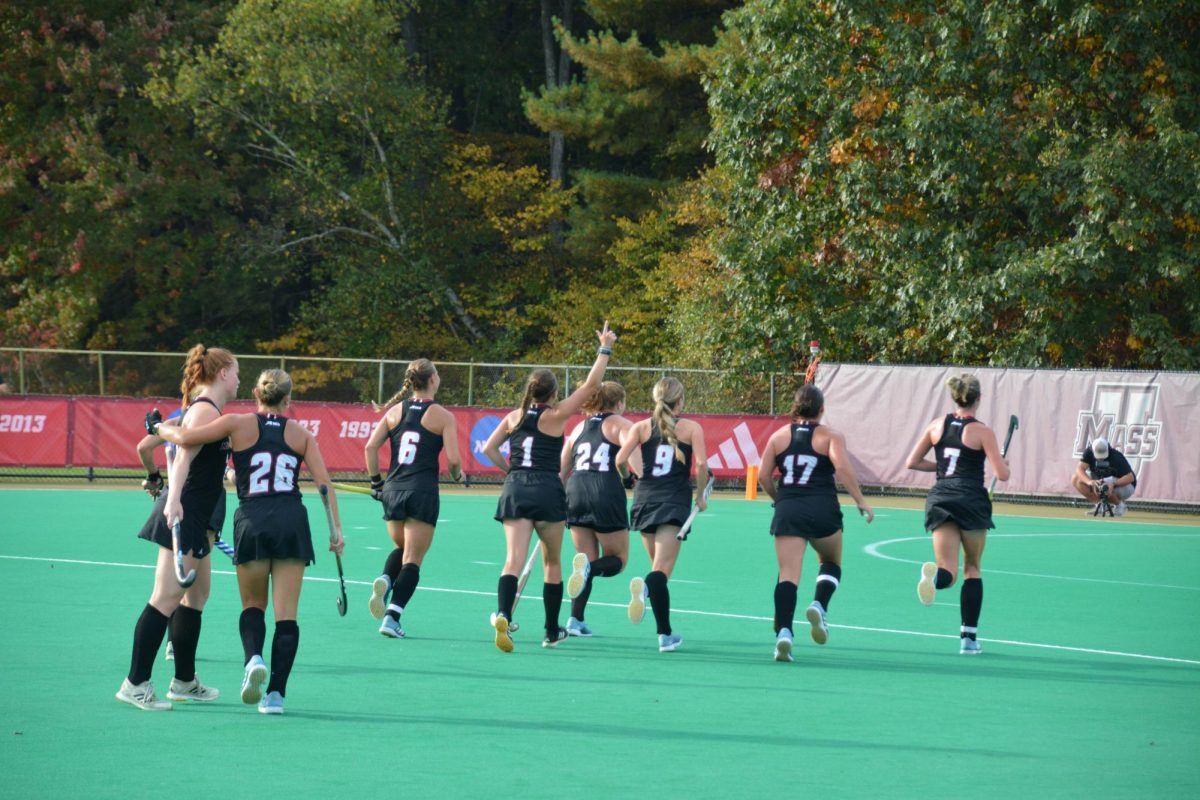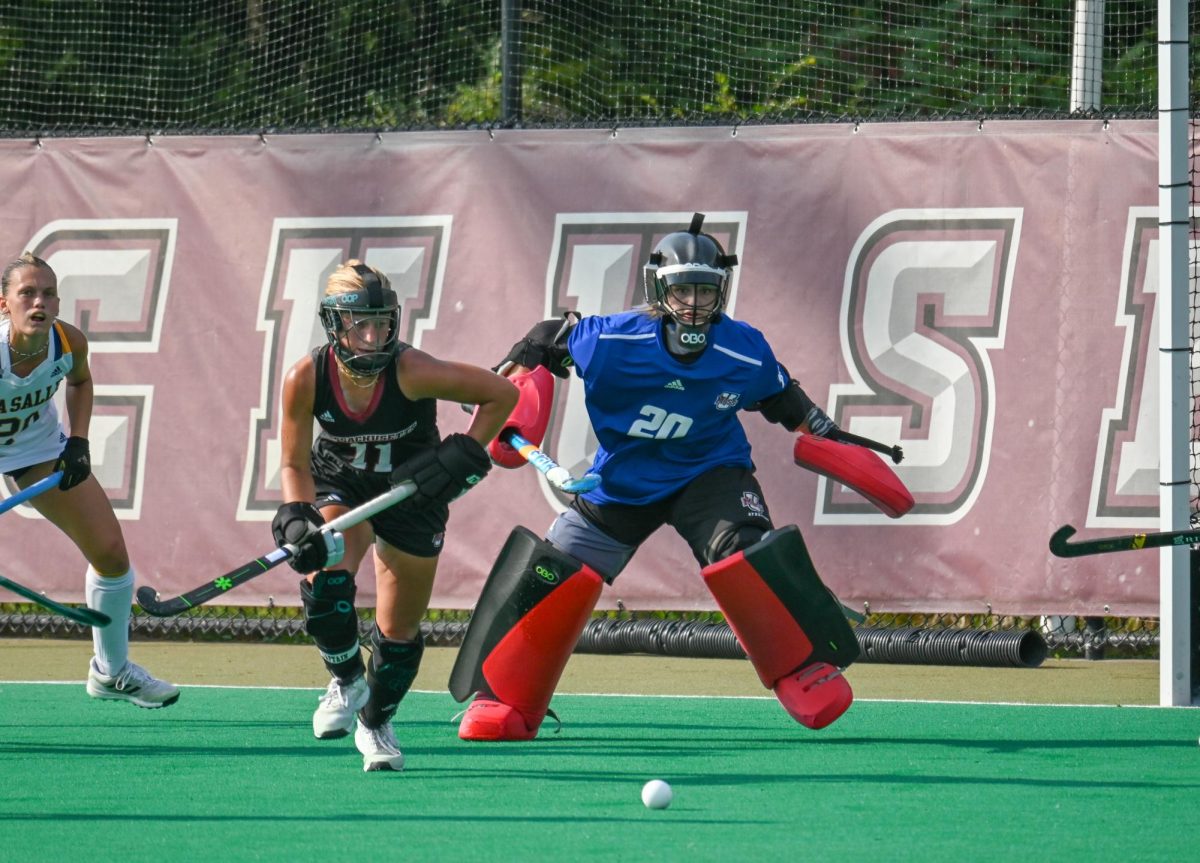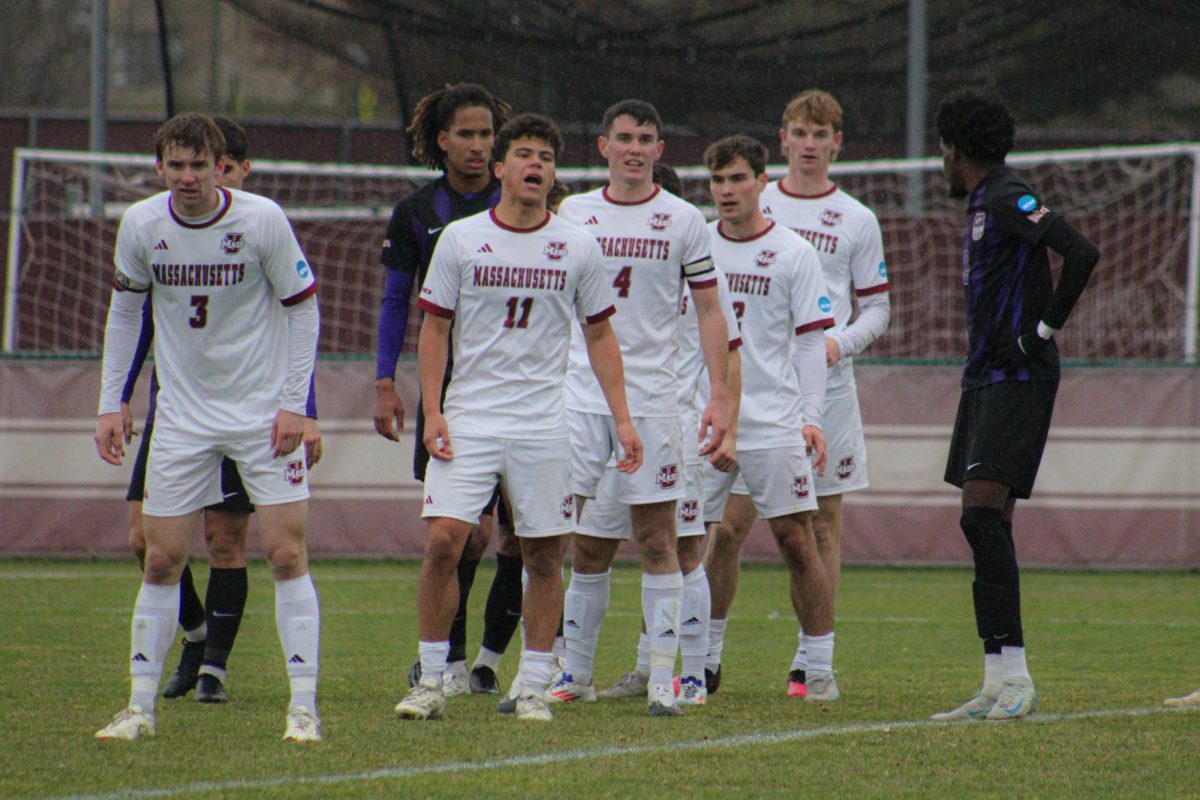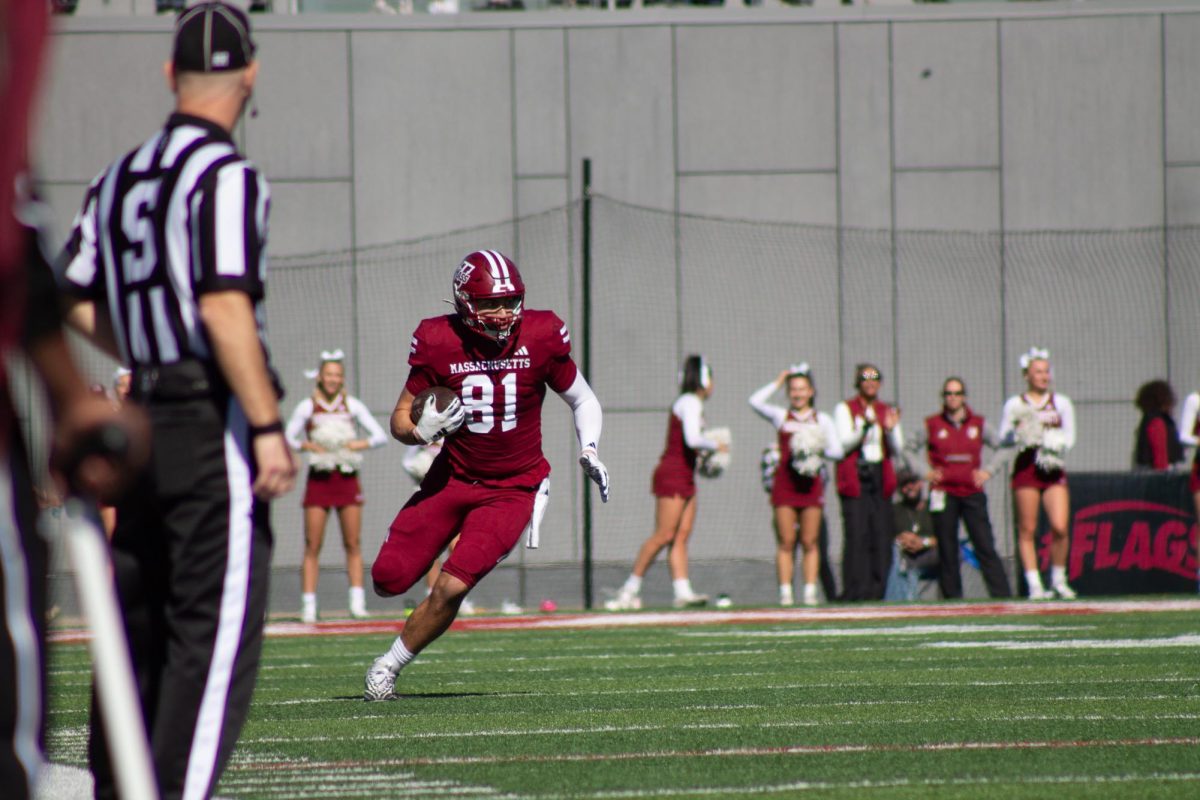Outreach, a University of Massachusetts recruitment effort, is a form of early college awareness that starts with students at middle schools and follows them through high school.
It includes staff members, students, admissions counselors and parents, who talk to students about the prep courses they need in order to get accepted at UMass. Students and staff members provide tours of the University, as well as share their experiences on campus.
“The University actively wants to achieve two goals: access and diversity. If we have any hope of achieving these goals it has to start before 11 grade,” Joe Marshall, the Dean of Enrollment Services, said. “The rational of outreach is to fill in where the counselors and or the families are either unable or unwilling to provide that assistance.”
The four different areas in outreach are academic preparation, parental education, financing an education, and exposing prospective students to the university enrollment goals.
“I did three things. I created a permanent position to over see the development of the outreach program for Enrollment Services,” Marshall said. “I reassigned four admissions recruiters to outreach and expanded their recruitment function to include outreach. I also started a grant from the Board of Higher Education that allowed us to create a foundation for outreach. So far, the program has managed to pursue its goals, in spite the fact that budgets have been shrinking over the last four years.”
Exploring issues in the area of Outreach and recruitment is about introducing students to various duties and responsibilities, as well as making them familiar with the decision making process of college admissions at the universities.
“It is significant that in over 22 years of experience, I haven’t seen a more effective method of engaging students, parents, community members, teachers, parents and counselors in meaningful conversations about college admissions for disadvantage students,” Director Jose Bou said.
A class that goes in depth with outreach is called Home Town High and it trains a group of students to go back to their hometown high school to talk to juniors and seniors about their own experience at UMass-Amherst. However, the program continues to face obstacles despite its success.
“We need more support from the University, particularly from admissions, academic support programs, faculty and more important our student body,” John P. Ebsworth, assistant director, said. “It’s more than a job, it is a service to the students and to the community in general. I see the whole idea of Outreach as creating, enhancing, and supporting college awareness not just in schools but in our community [as well]. I have learned a lot from our staff and students, especially our Native American community. I believe they have one of the most effective approaches to educate our children, which can best be described by the saying: it takes a whole village to raise a child.
“It is beneficial because as a university we expect students to meet certain requirements in order to get accepted into our programs. However, we assume that everyone knows what the requirements are. This is where the Outreach program fills in the gap by exposing the students, parents, schools, and the community to the information at several stages of the student development,” Ebsworth said.
There are plans to improve Outreach and expand its project to include the entire Commonwealth of Massachusetts and all of its institutions of higher education.
“The consequence of not doing Outreach is that we will continue to struggle to achieve our access and diversity goals,” Joe Marshall said.
Staff members and proponents of the project are eager to share their enthusiasm and excitement for the program.
“I’d like to do more community base work with families and other community members. Outreach is a community based education project. I feel powerful, responsible and good when I talk to high school kids about college,” staff member Carlos Pe


